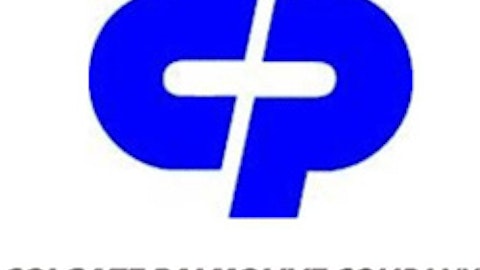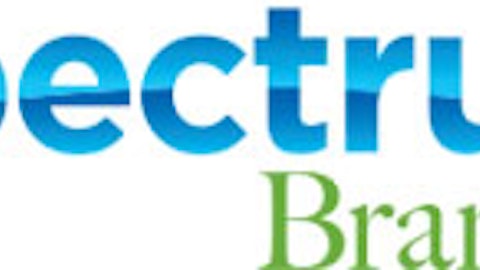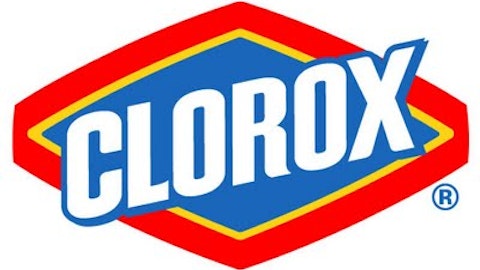
Clorox: Household industry
The Clorox Co (NYSE:CLX) manufactures, markets, and sells consumer products, mainly in the cleaning, household, and personal care segments where competition is fierce. However, its strong brand names and dominance in almost every sector it competes in have provided the firm with a fair moat that has and will most likely continue to keep competitors out of its share of the market. Furthermore, this protection is boasted by “returns on invested capital (which have averaged nearly 25% over the past five years) far in excess of our cost of capital estimate and solid cash flow generation.” (Morningstar)
Although The Clorox Co (NYSE:CLX) is expected to underperform its industry peers in terms of EPS growth over the next few years, its stability and moat, added to a constantly increasing 3.08% dividend yield, high returns on equity, ongoing stock repurchase plans, and a reasonable valuation (at 19.5 times P/E versus the 26.6x industry mean) make it a worthy investment for the long-term.
Even though analysts expect the skillful management of The Clorox Co (NYSE:CLX)´s wide brand portfolio to be the main growth driver, various other development avenues seem available for exploitation. International expansion is one of these, as under-penetrated markets like Brazil, Russia, India, China, the Middle East, and several other emerging Asian economies provide plenty of expansion opportunities.
Acquisitions have and will continue to play an important role in the firm’s progress, as evidenced by the Caltech Industries, Aplicare, and HealthLink purchases, among others. The infection-control business seems to offer plenty of upside, so the company´s incursion in the field looks promising. Moreover, bulky capital investments in IT systems should boost productivity while lowering costs (Zacks).
Colgate-Palmolive: Global leadership in personal related products
Colgate-Palmolive Company (NYSE:CL) is another big leader in the consumer products segment, mainly competing in the oral, personal, health-care, and pet nutrition industries. Although analysts advocate on holding on this stock at the moment, the firm offers sustainable competitive advantages for long-term investments that cannot be overlooked. Similar to Clorox, Colgate has been consistently increasing its dividend yield — for about 50 years now — with a yield projected at 2.35% at the current price.
The firm’s wide economic moat is derived from a strong brand portfolio and particular dominance in the oral and personal care segments. However, Colgate-Palmolive Company (NYSE:CL) does not rest on its mature products but rather continues to innovate. This feature, coupled with strong quarterly results, strategic acquisitions, and other efficiency increasing initiatives, supports a 9.4% expected EPS annual growth rate over the next five years to come.
Regarding cost reductions, a four year program launched in 2012 is expected to generate cost savings of approximately $365-$435 million annually from the fourth year, reducing the firm´s workforce by 8%, while projected to drive sales growth and market share expansion. In the acquisition field, Colgate-Palmolive Company (NYSE:CL)´s management remains focused on purchasing companies with long-term growth potential, as evidenced by the Sanex buy.
Although its valuation at 23.6 times its earnings seems a little less attractive than The Clorox Co (NYSE:CLX)’s, Colgate-Palmolive Company (NYSE:CL) is a company you might want to add to your retirement portfolio. With consistently increasing dividends and one of the strongest brand names in the business, Colgate and its stockholders seem poised to continue to benefit from both mature and emerging markets.




